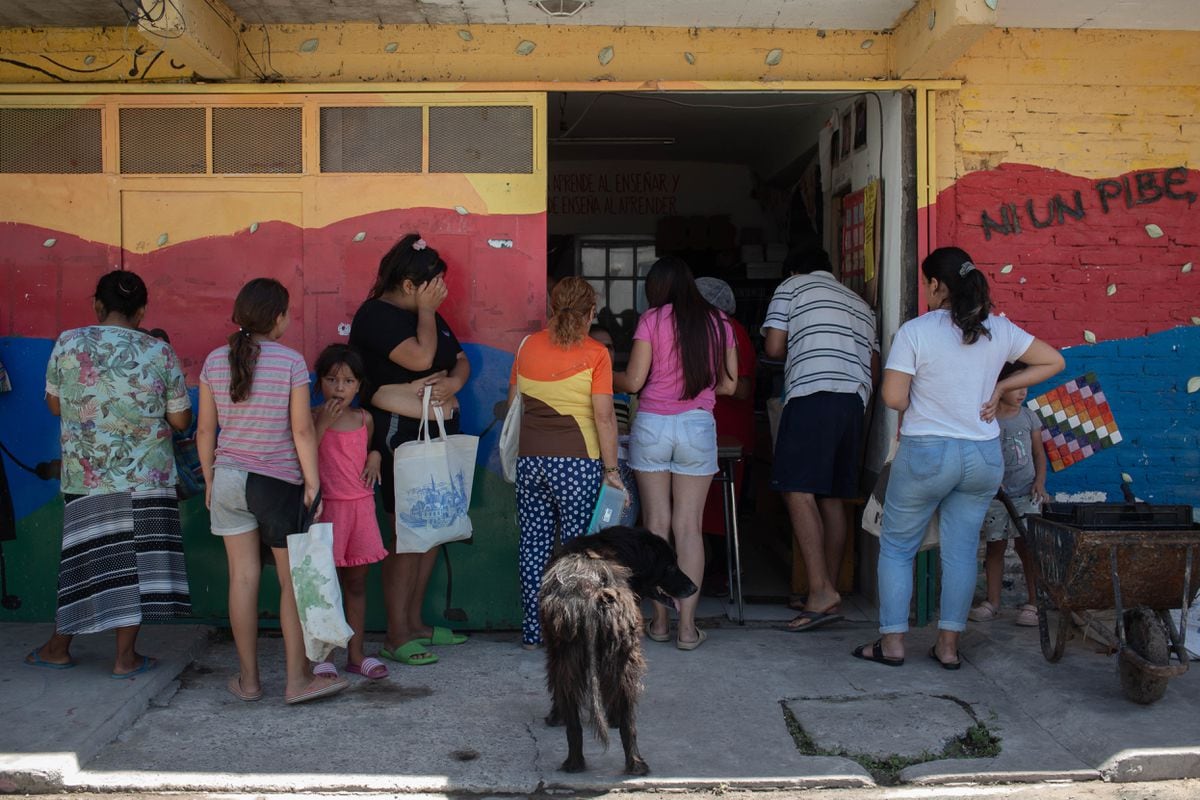Vanesa Lopez
01/23/2021 2:55 PM
Clarín.com
Society
Updated 01/23/2021 2:55 PM
The national government promised to vaccinate against the coronavirus, during this year, more than 25 million people over 18 years of age with
51,431,000 million doses
that will be supplied twice.
The Ministry of Health has insured 22.4 million doses from the
AstraZeneca
company
;
20 million from the Russian
Sputnik V
vaccine
;
and 9 million from the
Covax
plan
.
It is also in negotiations with the firms
Pfizer, Jannssen, Sinovac, Sinopharm, Moderna and CanSino.
The information comes from a document that was distributed in the last hours to the members of the Health Commission of the Chamber of Deputies.
The text indicates that the more than 50 million doses will be distributed
in an order of priority.
President Alberto Fernández received the first dose of the Russian vaccine against COVID-19.
Photo DPA.
Some 821,394 doses will be destined for health workers;
7,414,866 for people aged 60 or over (167,936 in the 5,173 residences for the elderly);
493,727 for members of the armed and security forces;
4,063,968 for patients between 18 and 59 years old with comorbidities.
In addition, the plan includes 1,417,310 members of the education staff (primary, secondary and tertiary) and 266,034 for essential State personnel, such as university teachers and others.
So
who will not receive it?
The official site Argentina.gob.ar proposes contraindications for the application to those
under 18 years of age
(due to the lack of data on efficacy and safety in this age group) and
pregnant
or lactating women (because it has not been studied its efficacy and safety during this period).
It is also not indicated for people with hypersensitivity to any component of a vaccine or to a vaccine that contains similar components;
history of
severe allergic reactions
;
severe acute diseases (infectious and non-infectious) or exacerbation of chronic diseases that involve compromise of the general state.
Arrival in Ezeiza of the second dose of the Russian Sputnik V vaccine. Photo Enrique García Medina.
Then there are what we could call “Ni-Ni”.
We are talking about people who
are not essential
(neither doctors, nor teachers, nor policemen) and who do not belong to
any risk group
.
They are between 18 and 60 years old, and have no underlying disease.
It is estimated that there are about 15 million Argentines.
The technical guidelines for the National Vaccination Campaign against Covid-19 - released in December by the Ministry of Health - places them in
seventh place
in the order of priorities.
And he describes them as: "Other strategic populations defined by jurisdictions and dose availability."
They, too, are supposed to be - one day - immunized.
Because, as reported in this campaign, it seeks to "
vaccinate 100% of the target population
in a staggered and progressive manner, in accordance with the gradual and increasing availability of the resource and the prioritization of risk."
Consulted by
Clarín
, the pediatrician and epidemiologist Norberto Giglio says he is "optimistic" that this group will have access to vaccines, although he assumes that "we do not know the number of vaccines that we will have throughout 2021."
"As we know,
staggered goals are pursued
. In the short term, it is to keep essential personnel active to help people in need. In the long term, to achieve herd immunity," he says.
The national government has insured 22.4 million doses from the AstraZeneca company.
AFP photo.
According to Giglio, no one knows exactly what is the "magic" number that guarantees herd immunity, either by recovered patients with long-lasting immunity or by vaccinated people.
And he says that some experts, such as Dr. Anthony Fauci, warned that control of the disease may require immunity rates of between 70 and 90% of the population.
The problem is when this seventh group will receive the vaccine.
Or, at least, when will 70% of that target population do so, which could serve to achieve herd immunity?
“It is
virtually impossible to
arrive in terms that are less than one year.
I really see it very difficult, "said the former Minister of National Health, Adolfo Rubinstein, in an interview with Clarín.
Meanwhile, the expectation grows.
A survey that covered 47 countries - and that in Argentina was carried out by Voices! - concluded that our country is above the global average, with
79% of people saying that they would receive the vaccine
if it were considered safe and effective.
Among those willing to apply it, there is a higher proportion of men (85% vs 73% women) and
young people between 18 and 29 years old
(87%).
But this last group is, precisely, among the least prioritized to obtain it.
For those who are intrigued, a calculator created on the Omni Calculator platform allows estimating, according to the profile of each person, when they would get the puncture in Argentina.
Look also
Two studies reveal how variants of the coronavirus could compromise the effect of vaccines
Coronavius in the Conurbano: mayors organize campaigns for their neighbors to get vaccinated








